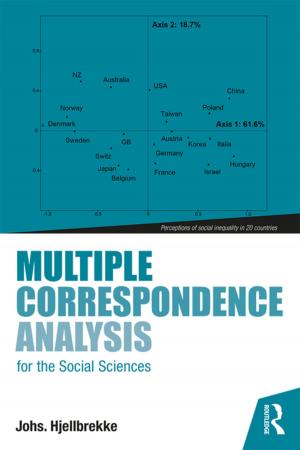Poetics of Self and Form in Keats and Shelley
Nietzschean Subjectivity and Genre
Fiction & Literature, Literary Theory & Criticism| Author: | Mark Sandy | ISBN: | 9781351910668 |
| Publisher: | Taylor and Francis | Publication: | March 2, 2017 |
| Imprint: | Routledge | Language: | English |
| Author: | Mark Sandy |
| ISBN: | 9781351910668 |
| Publisher: | Taylor and Francis |
| Publication: | March 2, 2017 |
| Imprint: | Routledge |
| Language: | English |
Beginning with a reassessment of contemporary romantic studies, this book provides a modern critical comparison of Keats and Shelley. The study offers detailed close readings of a variety of literary genres (including the romance, lyric, elegy and literary fragment) adopted by Keats and Shelley to explore their poetic treatment of self and form. The poetic careers of Keats and Shelley embrace a tragic affirmation of those darker elements latent in the earlier writings to meditate on their own posthumous reception and reputation. Fresh readings of Keats and Shelley show how they conceive of the self as fictional and anticipate Nietzsche's modern theories of subjectivity. Nietzsche's conception of the subject as a site of conflicting fictions usefully measures this emergent sense of poetic self and form in Keats and Shelley. This Nietzschean perspective enriches our appreciation of the considerable artistic achievement of these two significant second-generation romantic poets.
Beginning with a reassessment of contemporary romantic studies, this book provides a modern critical comparison of Keats and Shelley. The study offers detailed close readings of a variety of literary genres (including the romance, lyric, elegy and literary fragment) adopted by Keats and Shelley to explore their poetic treatment of self and form. The poetic careers of Keats and Shelley embrace a tragic affirmation of those darker elements latent in the earlier writings to meditate on their own posthumous reception and reputation. Fresh readings of Keats and Shelley show how they conceive of the self as fictional and anticipate Nietzsche's modern theories of subjectivity. Nietzsche's conception of the subject as a site of conflicting fictions usefully measures this emergent sense of poetic self and form in Keats and Shelley. This Nietzschean perspective enriches our appreciation of the considerable artistic achievement of these two significant second-generation romantic poets.















